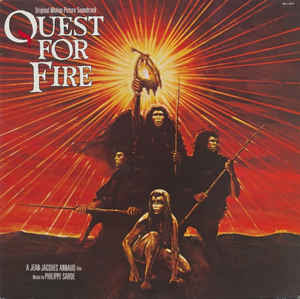One measure of how Maine has changed would be the ratio of pleasure boats to working boats one sees tied up at docks or drifting on moorings. It’s about ten to one on the southern/western shore from Kittery to Portland, and gradually reversing the further down east you go. In Nova Scotia, it was hard to find a pleasure boat at all, so the trend continues the further east one goes. Crossing another item off our bucket list, we took “The Cat” ferry from Portland to Yarmouth, Nova Scotia last Thursday.
 |
| Sunset in The Cat's wake last Thursday |
Activity by the sea is all business in Nova Scotia, and one lobsterman likened his job to farming. He said his boat is his tractor and his crop is that red/green crustacean. Weather is a factor and he works all winter, November to May. Sometimes his crop is abundant, sometimes not. Sometimes the price is up. Sometimes it’s down, and it’s all out of his control. Right now, times are good because the price is up and there are lots of lobsters out there.
 |
| Transom-less lobster boats |
Lobster boats in the province are bigger than what one sees in Maine. They’re wider with no transom. The lobsterman explained that in Maine they tend one trap at a time — hoisting it up, pulling out the lobster(s), re-baiting, and dropping it back down under its buoy. He, on the other hand, strings out his traps — twenty on a line, with a buoy and an anchor on each end. He pulls them up and arranges them on the transom-less back deck, harvesting and re-baiting one at a time, then letting them slide off the rear deck one at a time and getting out of the way as he does so.
 |
| Mavillette Beach NS |
Land in southwestern Nova Scotia where I explored is not fertile. Hardly anybody lives inland and there are very few roads. There are lots of lakes but few rivers of any size. Yarmouth is at the end of Nova Scotia’s lower peninsula, which runs more east/west than north/south. The map shows a jagged coastline on the south/Atlantic side where I found more fishing villages, and straighter on the north/Bay-of-Fundy side where I found more beaches and some farms. Stunted fir and spruce dominated with few hardwoods, and I saw lots of bog. It’s a lot like mid-20th century downeast Maine.
 |
| Mavillette Beach and Cape St. Mary |
Ethnically, the population has about the same distribution as Maine — mostly Scots-Irish, lots of Acadian-French, some Irish, some English, some Indian. The lobsterman asked me if I felt at home there. “Yes,” I said. “Why do you ask?” He said he felt at home all across Canada from there to Vancouver, but when he traveled to the states, he didn’t. When I asked why, he was reluctant to answer. “Try,” I said. “Find the words. I won’t be offended.”
 |
| Cape St. Mary |
In Canada, he said, people think “we” first, and then “I,” but in the states they think “I” before “we.” I pondered that for days and learning more about each town’s history as I traveled around I found clues about why he had that impression. Digby, on the Bay of Fundy side, was established by shiploads of Loyalists fleeing rebellious colonies that became the United States. So was Shelburne on the Atlantic side and British flags proliferated there — I saw more Union Jacks than Maple Leafs. Though ethnicities are the same in Maine and Nova Scotia, personalities differ and I wondered if traits like an independent spirit or a herd instinct are inherited along with blue eyes and brown hair.
 |
| Mavillette Beach again |
As Senator Obama said in 2008, Americans cling to their guns. We also maintain a healthy suspicion, even hostility, toward government efforts to restrict them, but that’s not so in Canada. Handguns are forbidden everywhere and long guns are strictly controlled. I got a clue about this on a previous trip when a border guard spotted a box of .22 shells I’d left in the glove compartment. He called others over and they carefully searched my entire truck and its contents, going through every bag and suitcase while I stood around wondering what was the big deal.
 |
| Building a dory at Pubnico |
A reconstructed Acadian Village Museum in Pubnico, which is the oldest Acadian settlement in Canada still inhabited by descendants of its founding families, was very interesting. It was established in 1653 by Philippe Mius D’Entremont and the entire community had been expelled by the British in the 1750s. Their property was given to New Englanders who moved up and took over. Acadians were allowed back eleven years later but couldn’t recover their property and had to start over from scratch. Colonel Joseph Frye, who later founded Fryeburg, Maine, was ordered to carry out some Acadian deportations, but I’m not sure if he did so in Pubnico. According to his diary, he did not relish the task.
The Cat delivered us safely back to Maine Monday. It’s nice to go away, and nice to come home as well.




























